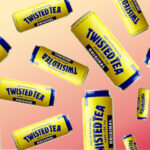Have you ever wondered how much caffeine in chocolate? When it comes to our coffee and energy drinks, we know the exact amount of caffeine that we are consuming. However, when it comes to chocolate we’re not always sure of the levels of this stimulant. Many people assume that because chocolate has been considered an indulgent treat for centuries, that there must be large amounts of caffeine within it; however this isn’t always the case! In this post, I will explain why different forms or types of chocolates have varying levels of caffeine and help demystify exactly how much is lurking inside your sweet treats. Keep reading to find out more about the surprise ingredient lurking in your favorite indulgence-caffeine.
Contents
Introduction About Caffeine
Caffeine is an alkaloid, which is known as a stimulant that can be found naturally in the leaves, seeds and fruits of certain plants around the world. When consumed it triggers a release of dopamine within our bodies which can make us feel alert and energized. This makes caffeine an important ingredient for many energy drinks, coffees and teas however surprisingly enough it has been used as an additive to chocolate since the 17th century.
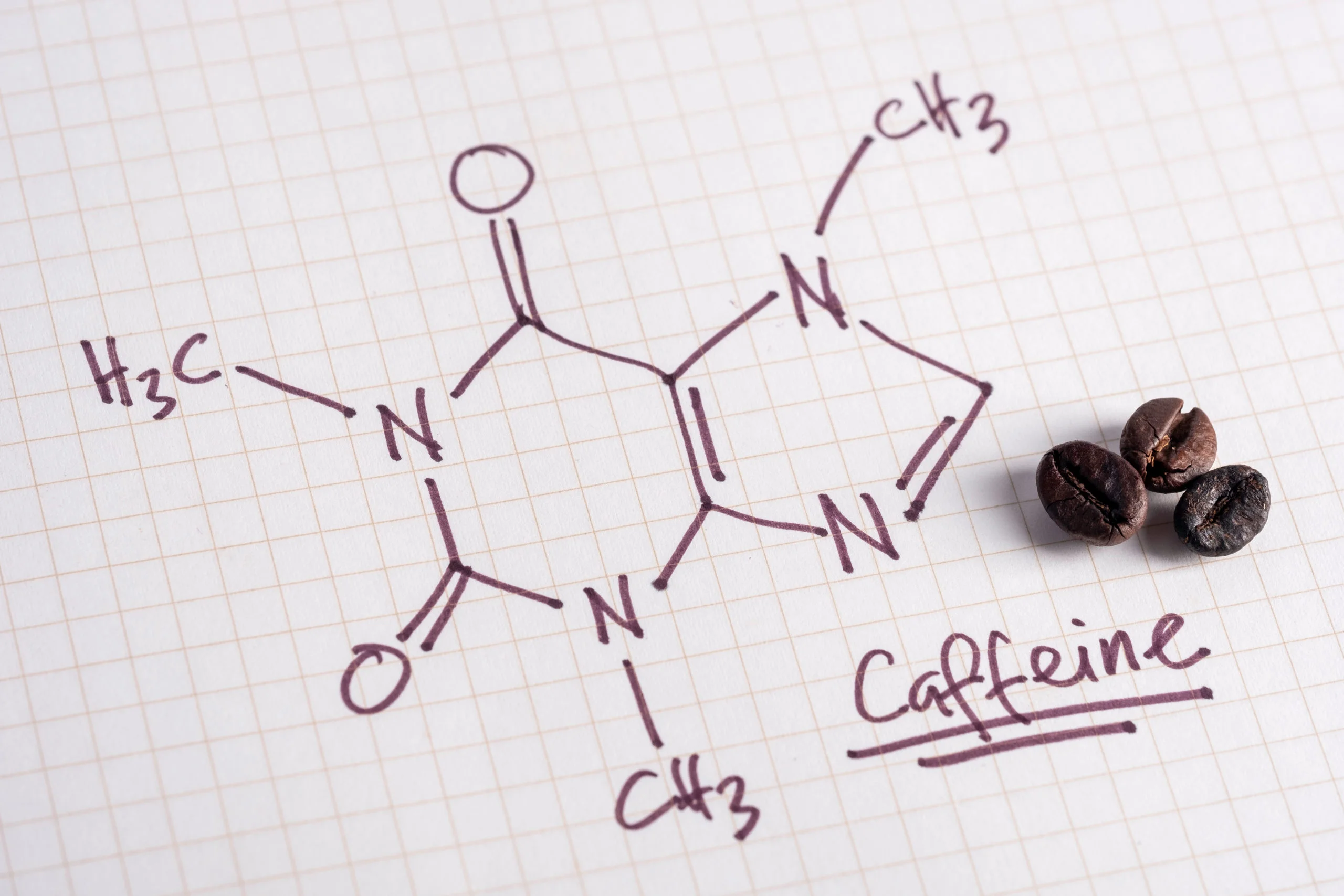
What Is Chocolate?
Chocolate is a confectionary food made by combining cacao beans with milk and sugar. Depending on the type of chocolate, it will contain varying amounts of these ingredients. For example, dark chocolate or bittersweet chocolates usually have a higher cocoa content (usually 70% or more) with a lower amount of sugar and sometimes no milk at all; whereas white chocolate has very little cocoa in it and instead contains high levels of lactose from the added cream or milk.
Does Chocolate Have Caffeine?
Yes, chocolate does contain caffeine in varying amounts – the type of chocolate and the amount of cacao it contains will determine this. Darker chocolates usually have a higher cocoa content meaning they contain more stimulants than regular milk or white chocolates. Generally speaking, the darker the chocolate is then the more caffeine it will contain; however this is not always true as different manufacturers can add their own ingredients which can impact on the overall levels of caffeine found within them.
Before we dive into how much caffeine in chocolate, let’s watch this video to learn about does chocolate have caffeine.
Where Does Caffeine In Chocolate Come From?
Chocolate does not have caffeine in it naturally; however, there are traces of the stimulant within cocoa beans. Indeed, cocoa beans usually contain only 1-2% caffeine depending on their origin and the type of bean used. These small amounts can be further concentrated during processing. Therefore, if you’re eating a chocolate product which contains higher levels of pure cocoa solids then you could expect to see some mild stimulating effects from the cacao’s natural caffeine content.
Also, try: how much caffeine in a shot of espresso
How Much Caffeine In Chocolate?
The amount of caffeine in chocolate will vary drastically depending on the type of chocolate and what form it is in. For example, dark chocolates with 70% or more cocoa solids will contain around 8-14mg of caffeine per 28g or 1 ounce. On the other hand, milk chocolates and white chocolates are much lower in caffeine content with only 5-6 mg per 28 grams or 1 ounce.
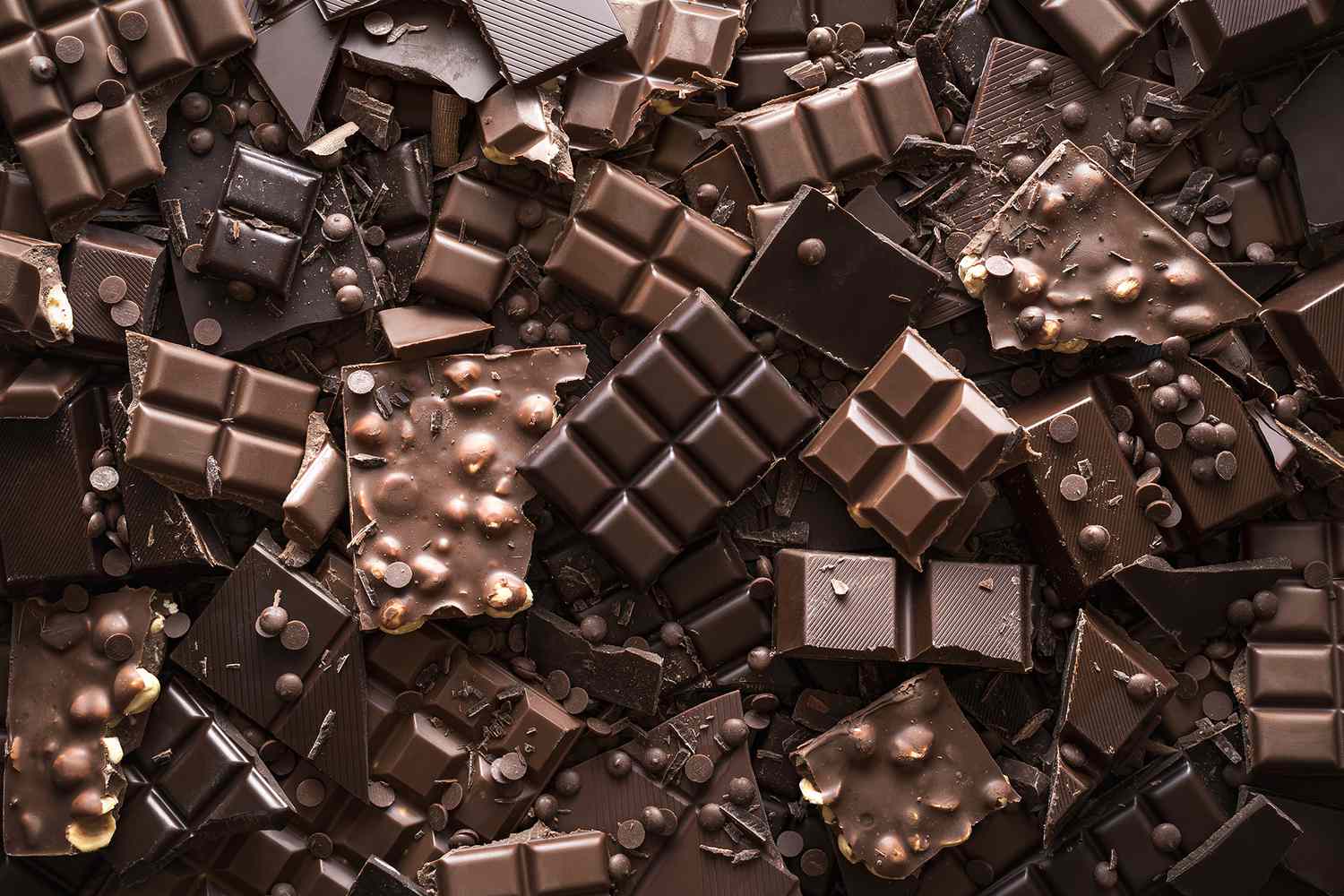
Benefit To Know How Much Caffeine In Chocolate
Being aware of how much caffeine in chocolate can help us make informed decisions when it comes to our diet and health. For example, if you’re looking for a treat that won’t give you too much of a jolt then it might be best to opt for white or milk chocolates which are both lower in caffeine than dark chocolate varieties.
In additionally, knowing how much caffeine in chocolate can be a great way to manage your intake of this stimulant. While the levels are generally quite low, it’s important to remember that they still add up if you are regularly consuming foods or drinks with added caffeine. By being aware of the amount of caffeine in different types of chocolate, you can make an informed decision when it comes to choosing which treats to indulge in.
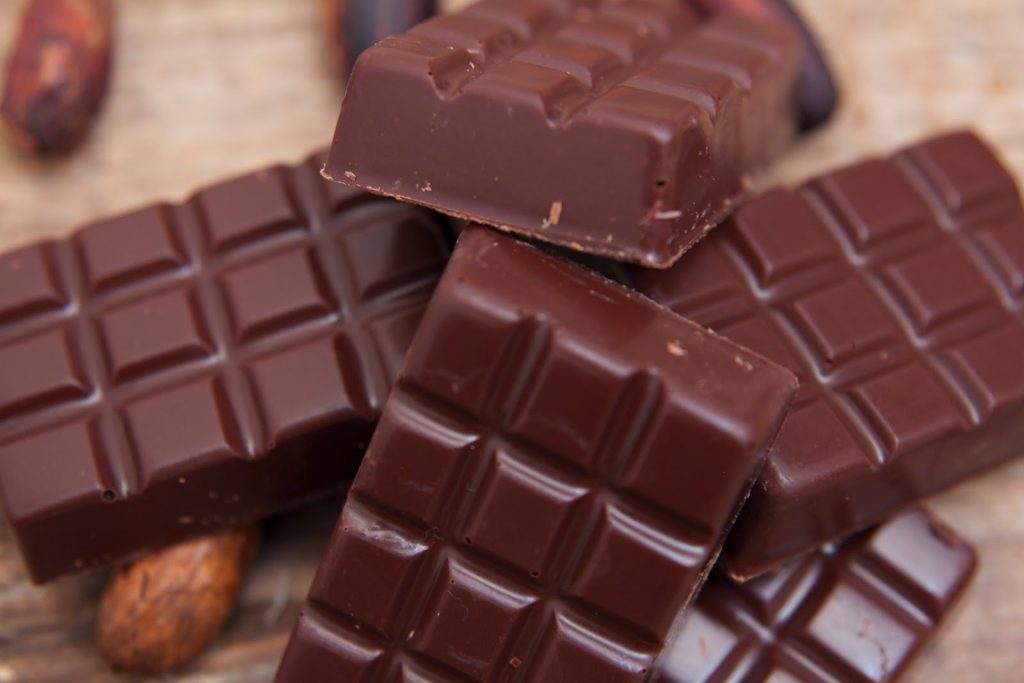
Factor Affect To How Much Caffeine In Chocolate
Aside from the type of chocolate, there are other factors that can affect the amount of caffeine in chocolate. For example, adding additional ingredients such as coffee or espresso to a recipe will naturally increase the levels of caffeine; while reducing sugar content (like with dark chocolates) can reduce the amount of stimulant present. Similarly, using cocoa beans sourced from different countries or regions can also impact on the intensity levels. Such as, if a chocolate is made with Robusta beans it will likely have more caffeine than one made with Arabica beans, with intensities ranging from 1-2 mg/g versus 2-4 mg/g respectively.
Different Types Of Chocolate And Caffeine Levels Of Them
Unfortunately, due to the way that chocolate is processed, it can be quite difficult to determine how much caffeine is in a regular bar of chocolate. However, as a general rule of thumb, dark chocolate contains more caffeine than milk chocolate. Of course this isn’t always true and many manufacturers add varying levels of caffeine into their products which can alter the amount overall.
Dark Chocolate: Dark chocolate typically has around 20-60mg/100g while Milk Chocolate generally only has 2-7mg/100g. This means that if you opt for dark chocolate over milk chocolate then you will be consuming significantly more caffeine.
White Chocolate: White chocolate doesn’t contain any caffeine at all due to the fact that it isn’t made from cocoa powder, which is where most of the caffeine is found.
Caffeinated Chocolate: Some manufacturers now produce chocolates that contain added caffeine, usually in the form of an energy drink or tea blend. These products will typically have higher levels (up to 10 times more!) than traditional chocolate bars so be sure to read labels carefully before consuming.

Caffeine In Chocolate By Brands
Depending on the brand, there can be a large variation in how much caffeine is contained within their chocolates. For example, Hershey’s produces several different types of chocolate bars with varying levels of caffeine from 0 mg per 100g to 2 mg per 100g. Cadbury also has a wide range with some containing as little as 0.3mg/100g and other bars containing up to 10mg/100g. So, here are some popular chocolate brands and the caffeine content in their chocolate:
– Hershey’s Original Milk Chocolate Bar: 6mg/100g
– Hershey’s Kisses: 0.3mg/100g
– Cadbury’s Dairy Milk Bar: 2.5mg/100g
– Cadbury Dairy Milk Chocolate: 3.6mg/100g
– Ghirardelli Dark Chocolate Squares: 25.2mg/100g
– Lindt 70% Cocoa Excellence Bar: 35.5mg/100g
– Dove Dark Chocolate Bar: 20.4mg/100g
– Nestle Milk Chocolate Bar: 5mg/100g
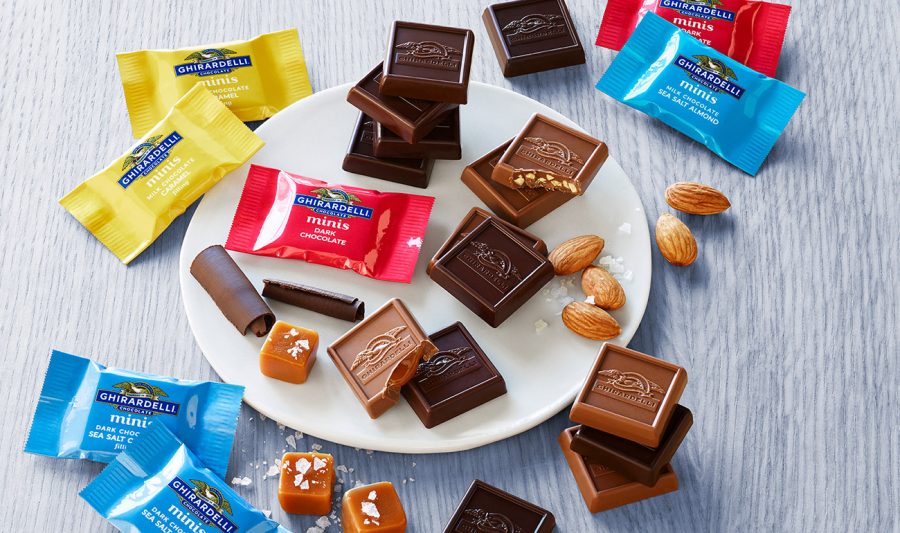
Caffeine In Chocolate Compared To Coffee And Tea
When comparing caffeine in chocolate to coffee and tea, it’s important to remember that the stimulant content in these drinks is much higher. For example, a cup of brewed coffee can contain anywhere from 95-200mg of caffeine whereas a cup of green tea contains around 25-45mg. This means that while chocolate may contain some caffeine, it is not nearly as potent as its hot beverage counterparts.
You will also love the following: how many calories in a bagel with cream cheese
Health Benefits Of Caffeine In Chocolate
Caffeine found in chocolate has been known to provide a number of health benefits when consumed in moderation. Studies have suggested that consuming small amounts of caffeine can improve alertness and focus, reduce fatigue and increase energy levels. While others have linked it to improved heart health and reduced risk of Alzheimer’s disease. Caffeine is also thought to be beneficial for the heart as it helps relax blood vessels which can then facilitate an improved flow of oxygenated blood throughout the body. Finally, studies have shown that consuming caffeine in small amounts can also reduce inflammation within the body which could be beneficial for those with chronic illnesses or autoimmune disorders.
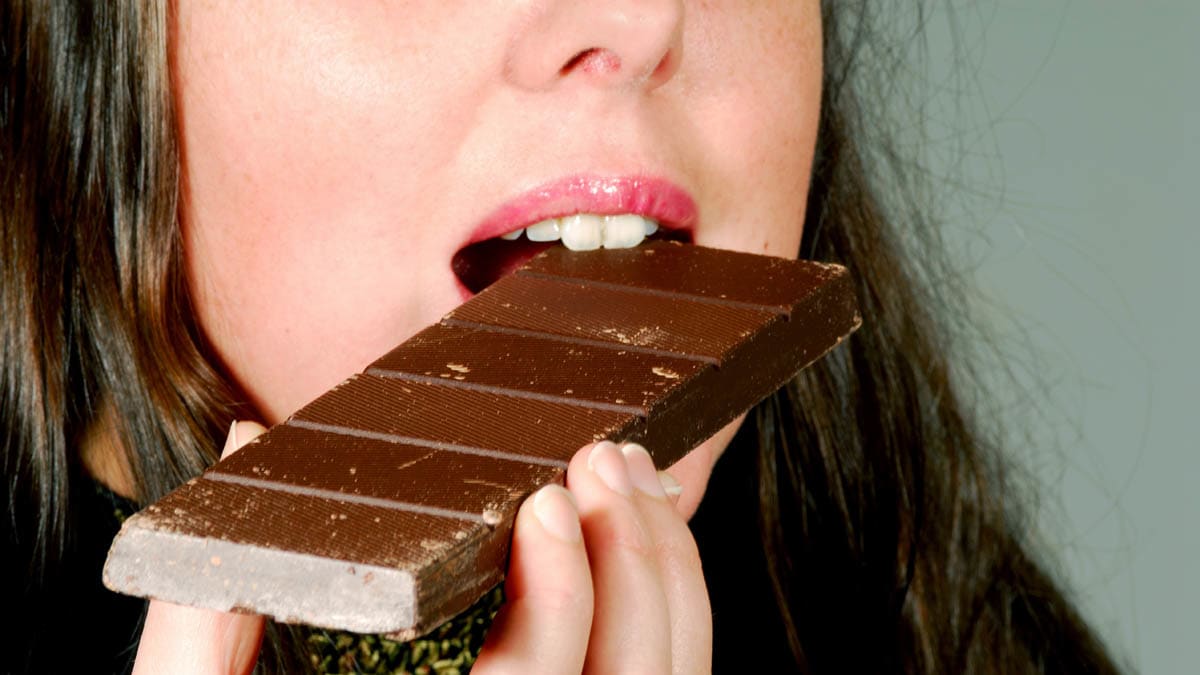
Conclusion: How Much Caffeine In Chocolate
When it comes to how much caffeine in chocolate, the answer varies hugely on what type or brand you are eating. Different types of chocolate have different levels of caffeine in them ranging from 0 to 12mg/100g. If you are looking for a way to get your daily dose of caffeine without having any coffee, then dark chocolates may be the best choice as they contain higher levels of this stimulant than their milk and white counterparts. Additionally, knowing how much caffeine is in a particular type of chocolate can be useful for those looking to manage their intake and reap the potential health benefits associated with it. Thanks you for reading at yongkangstreetnyc.com.
FAQs: Caffeine In Chocolate
Is chocolate high in caffeine?
If you’re wondering about the caffeine content in chocolate, here’s the scoop: A one-ounce square of unsweetened baking chocolate has 23 milligrams of caffeine. Meanwhile, a larger 3.5-ounce bar of dark chocolate (70-85% cocoa) boasts around 80 milligrams of caffeine. For those who prefer milk chocolate, a comparable bar contains an average of 20 milligrams of caffeine.
How much caffeine is in 30g of dark chocolate?
Discover the caffeine content of dark chocolate: 30g contains approximately 20mg (0.07%), while milk chocolate contains only about 6mg (0.02%). Compare and make informed choices about your chocolate intake.
Does all dark chocolate have caffeine?
Yes, dark chocolate contains caffeine. Among all types of chocolate, dark chocolate has the highest caffeine content. This is because darker chocolates are made from more cocoa solids, which contain caffeine. But don’t worry, you don’t have to give up this indulgent treat.
Does dark chocolate affect sleep?
Dark chocolate contains theobromine, a stimulant that increases heart rate and can cause sleeplessness. In fact, even a small amount of theobromine can keep you up at night. The National Sleep Foundation advises against consuming chocolate, coffee, tea, and soft drinks before bedtime to promote a good night’s sleep.
What chocolate has no caffeine?
Discover which chocolate varieties are caffeine-free with this insightful guide. While cocoa solids contain caffeine, white chocolate, made solely from cocoa butter, is a delicious and caffeine-free option. For those who love the intensity of dark chocolate, be aware that it has the highest concentration of caffeine due to its high cocoa solids content.
Does 72% dark chocolate have caffeine?
Yes, there is. Dark chocolate that contains 70 to 85 percent cocoa solids has approximately 23 milligrams of caffeine per ounce. If you consume a 100-gram bar, you will be getting 81 milligrams of caffeine, which could potentially lead to sleeplessness or an increased heart rate.
Which chocolate has more caffeine dark or milk?
Although dark chocolate has slightly more caffeine than milk chocolate, the difference is negligible. You would need to consume around four bars of chocolate to experience the same effect as a regular cup of coffee.
Does milk chocolate have more caffeine than coffee?
While milk chocolate packs a flavorful punch, it is no match for the caffeine content in coffee. This is confirmed by data indicating that 13 times more caffeine flows in an 8-oz cup of coffee as compared to a single serving of milk chocolate. Next time you need a boost, steer towards coffee for your daily dose of caffeine.
What is the duration of chocolate caffeine’s effects?
Caffeine typically takes 15 minutes to kick in and can last up to 10 hours in your system. Its peak effects are experienced an hour after consumption and can persist for several additional hours before gradually dissipating. Even up to 6 or 7 hours later, half of the initial dose may still be detectable.
Does Hershey’s chocolate have a lot of caffeine?
While most candy bars only contain minimal amounts, the caffeine content increases with the darkness of the chocolate. In fact, Hershey’s Special Dark Chocolate Bar boasts a staggering 31 milligrams – almost equivalent to the caffeine found in a can of Coke.
Which chocolate is high in caffeine?
Discover the chocolate rich in caffeine is dark chocolate. With the highest amount of caffeine among all chocolate varieties, dark chocolate is the go-to for a quick energy boost. This is due to the higher percentage of cocoa solids in dark chocolate, which is where the caffeine is found.

Chef Yong Kang has over 20 years of experience cooking in the finest restaurants, and is excited to present their vision to you and all our guests. Our caring and committed staff will ensure you have a fantastic experience with us.
We are also available for private events:, business lunches, dinners, and more. We would love to discuss how to be a part of your next event.Our restaurant refuses to compromise on quality, which is why we source our fresh ingredients from local farmers’ markets.







